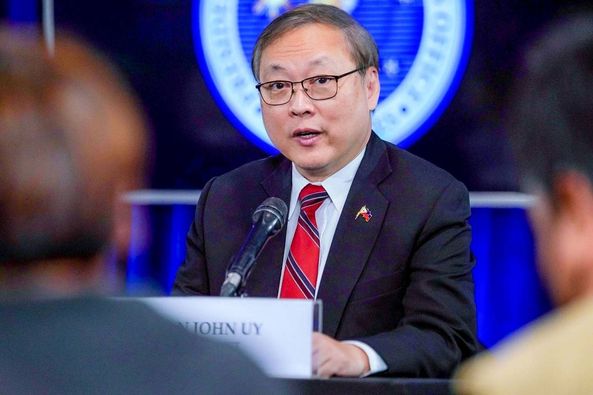Sisiguruhin ng administrasyong Marcos na nakikipagsabayan ang cybersecurity posture ng Pilipinas sa ibang mga bansa.
Pahayag ito ni DICT Secretary Ivan John Uy makaraang ilatag kay Pangulong Ferdinand R. Marcos Jr. ang National Cybersecurity Plan 2024 – 2028.
Sa press briefing sa Malacañang, sinabi ng kalihim na lalamanin ng komprehensibong plano na ito ang pag-develop ng magandang polisiya, at pagtukoy sa cyber assets at infrastructure na kailangang protektahan.
“So it also identifies cyber assets, infrastructure that’s out there that needs to be protected; provides how all of the different government agencies, the different sectors, whether its energy, transportation, finance sector can come together and address quick responses in case there are any attacks or any attempts, and a good coordination mechanism so that these information are shared.” — Secretary Uy.
Pinaiigting rin aniya nila ang malawakang training at capacity building para sa cybersecurity at AI, sa digital workforce ng Pilipinas.
“In the next two decades, the Philippines will be the country that would have one of the biggest and youngest workforce that can address many of the challenges that are faced by First World countries – their aging population, their lack of manpower in order to meet their economic development. But because of this gap on cybersecurity, we’re hoping that by building up capacity on cybersecurity, other countries would come and access our talents.” — Secretary Uy.
Palalakasin rin aniya ang koordinasyon ng pamahalaan sa ibang bansa, para sa advance threat assessment, at upang makakuha ng impormasyon sa international partners ng Pilipinas, kaugnay sa insidente ng hacking sa kanilang bansa.
Sa ganitong paraan, agad na maaabisuhan ng gobyerno ang mga kinauukulang tanggapan nito, bangko, at iba pang organisasyon sa Pilipinas na posible ring targetin ng hackers na una nang nagtangka sa ibang bansa.
“Those information so that we can proactively advise our banks here that, okay, there has recently been an attack on this particular bank in this particular country and this was the mode of attack; this was the payload; this was the vector that was used in the attack, and so our banks would be advised ahead of time and prepare for it. Because whatever vulnerability has been exploited in that attack would most likely be the same vulnerability that cyber criminals will use in order to penetrate the other banks or other financial institutions.” — Secretary Uy. | ulat ni Racquel Bayan




